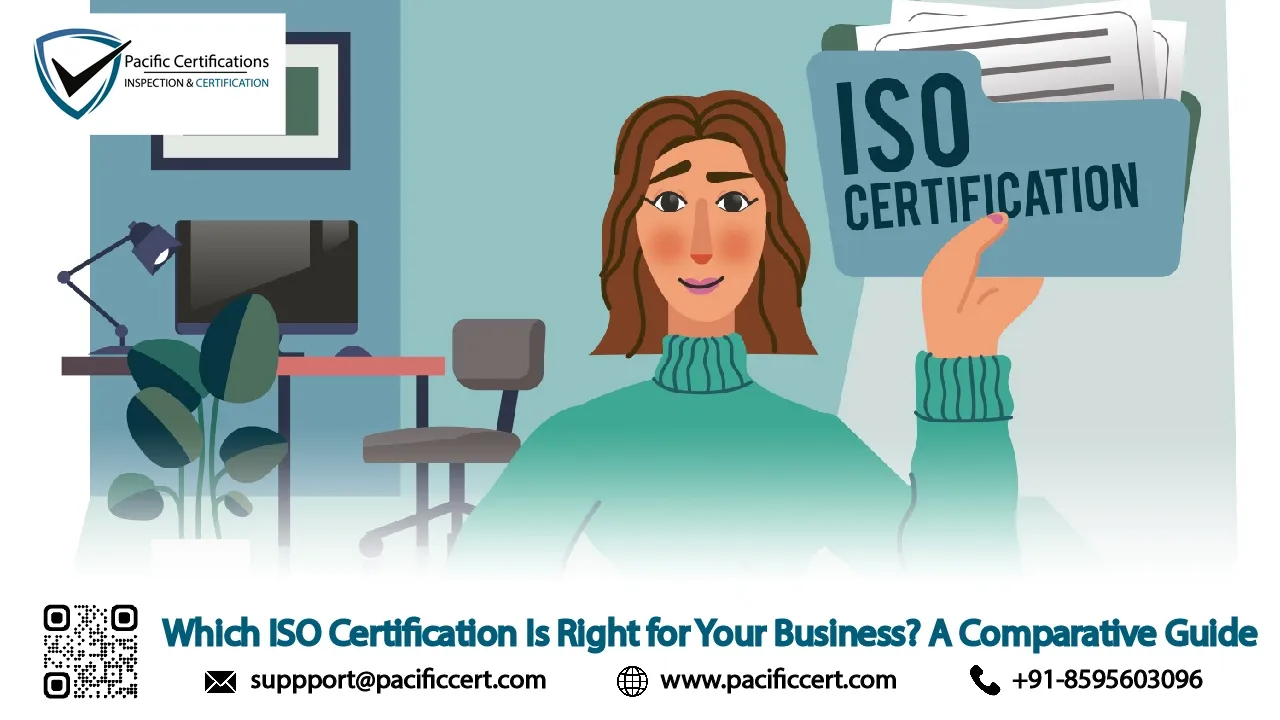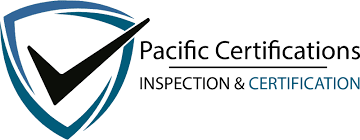Which ISO Certification is Right for Your Business? A Comparative Guide

ISO certificates can be great for businesses looking to increase operational efficiency, create quality assurance practices, or ensure compliance with certain industry standards. However, when faced with so many ISO certifications, it can be hard to determine which one is appropriate for your business. In this comparative guide, we will break down some of the most common ISO certifications to help you determine which one aligns with your business agenda.
For assistance, contact us at [email protected].
Introduction
The International Organisation for Standardisation has created more than 23,000 international standards that span a variety of industries and sectors. An ISO certification signifies quality and shows that an organisation meets the requirements necessary to deliver products or services that are safe, efficient, and the highest quality. Every ISO standard represents a different area of business operations, which emphasises the importance of selecting an ISO certification that suits your organisation’s goals, industry, and particular requirements.

ISO 9001: Quality Management System (QMS)
ISO 9001 is the largest ISO certification and establishes a quality management system that ensures you deliver products and services consistently at expected levels to customers, while ensuring that you are complying with regulations. ISO 9001 is applicable to all kinds and sizes of businesses with the intention of improving internal processes, streamlining operations, eliminating inefficiencies and developing customer satisfaction. Organisations that embark on ISO 9001 journey will find an improvement in product and service quality, enhanced customer loyalty and retention, and increased operations efficiency.
ISO 14001: Environmental Management System (EMS)
ISO 14001 provides a framework for organisations to systematically manage their environmental responsibilities. This certification is valuable to businesses wanting to reduce environmental footprints, improve sustainability, or comply with environmental legislation. Organisations can create and implement processes to minimise waste, improve energy consumption and use resources responsibly. If your organisation is aiming for improved environmental performance and actioning sustainability goals, ISO 14001 will help you implement environmentally responsible practices.
ISO/IEC 27001: Information Security Management System (ISMS)
ISO/IEC 27001 is designed to help businesses effectively protect sensitive dates and information systems. With the rise of cyber threats and new data protection requirements (ex: GDPR), this certification is of utmost importance to organisations holding or handling confidential information. ISO/IEC 27001 provides a systematic way to address and manage information security risks and build a protected secure environment for data. If your business is working to protect data or operating in data-intensive industries such as IT, Finance, or Health Care, this certification will enhance and catalyse good data security practices and can help ensure compliance with stringent data protection requirements such as GDPR.
For assistance, contact us at [email protected].
ISO 45001: Occupational Health and Safety (OH&S)
ISO 45001 centres around the provision of a safe and healthy working environment through hazard identification, risk management, and accident and injury prevention. Certification ensures that businesses provide a safe workplace and care for their employees while meeting health and safety legislation. ISO 45001 encourages the development of a safety culture within an organisation, which leads to positive employee health and well-being and employee engagement and satisfaction. If your organisation operates in high-risk industries like construction, manufacturing, and logistics, adopting ISO 45001 should be an important part of mitigating risks associated with workplace hazards and demonstrating that you care about the safety and health of your employees. This certification also contributes to a reduction in employee absenteeism and work-related incidents, resulting in positive employee morale and productivity.
ISO 50001: Energy Management System (EMS)
ISO 50001 is a standard designed with the intention of enabling organisations to improve their energy management practices, reduce energy consumption and improve energy efficiency. This standard provides a systematic approach and framework for organisations looking to track energy, reduce operational costs and greenhouse gas emissions. In particular, for organisations operating in energy- and resource-intensive industries, such as manufacturing, commercial buildings, and the energy sector, managing energy consumption is often a significant cost component. Having ISO 50001 in place also complements corporate sustainability initiatives and demonstrates an organisation’s commitment to their environmental impact.
ISO 22000: Food Safety Management System (FSMS)
ISO 22000 is an important certification for organisations in the food sector to demonstrate food safety throughout the food supply chain. It ensures that the organisation maintains food safety by establishing systems to manage their risk and to be able to control the supply chain to prevent contamination within the food supply chain. Also, ISO provides organisations with a good framework to establish a system to become compliant with all of food safety related laws and requirements to ensure safety in food products. It incorporates the principals and elements of Hazard Analysis and Critical Control Points (HACCP), a systematic approach to identifying and controlling safety hazards threats to food safety. If your organisation is in food manufacturing, packaging, or distributing food products, ISO 22000 will help you meet the highest food safety standards and thus, eliminate the risk of food sickness or food poisoning.
ISO 22301: Business Continuity Management System (BCMS)
ISO 22301 is a standard for organisational business continuity in the event of crisis or disaster situation. It provides a way for the organisation to develop and implement theory and plans to stay operation while in times of disruption. This is an important standard for any organisation that wants to prepare and gain management strategies around unexpected events, such as natural disasters, cyber-attacks, or financial crisis. It provides an organisational with an effective way to protect its critical functions, such as actions to minimise downtime, and reduce the financial impact of crisis situations. Also, organisations in the finance, healthcare, and IT can benefit from this standard to ensure an organisation keep the key operational functions and services uninterrupted in the time of a crisis or disaster.
Contact Us
Pacific Certifications can assist your organisation in understanding which ISO standard is right for your business. Our team of experts is here to guide you through the certification process and help you implement the necessary systems for compliance and success.
For assistance, contact us at [email protected].
Visit our website at www.pacificcert.com.
Ready to get ISO certified?
Contact Pacific Certifications to begin your certification journey today!
Suggested Certifications –
Read more: Pacific Blogs

